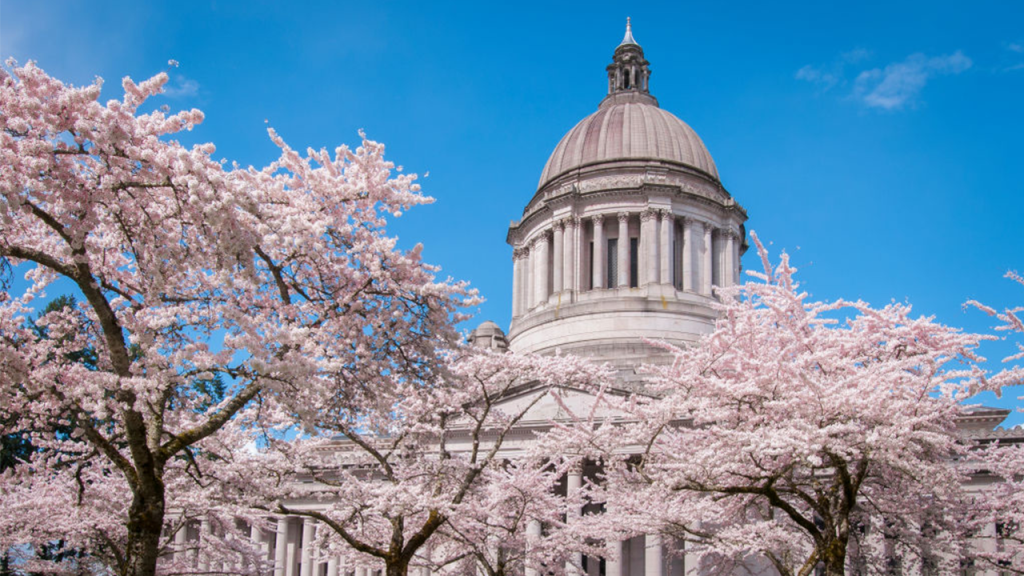The Washington State Senate Democrats’ accidental disclosure of their 2025 revenue plans has sparked controversy, revealing potential tax hikes that contradict campaign promises and raise concerns about their impact on the state’s economy. The leaked documents, including a list of revenue options and a PowerPoint presentation on communicating these proposals to constituents, outline a series of tax increases targeting various sectors and income brackets.
The proposed revenue options include an 11% tax on firearms and ammunition, reclassifying storage unit rentals as retail transactions, lifting the property tax levy lid for certain residents, and introducing a “capital assets ownership tax” similar to property taxes but applied to stocks, bonds, and other financial instruments. This last proposal aims to tax the assets of wealthy Washingtonians in the same way middle-class families’ real estate is taxed.
The PowerPoint presentation, intended to guide lawmakers in discussing the tax increases with their constituents, advises them to avoid terms like “tax the rich” or “pay their fair share,” favoring phrases like “pay what they owe.” It encourages using terms like “funding,” “providing,” and “ensuring” when describing the benefits of the tax increases, while avoiding vague references to “the economy” or “education.” The presentation further suggests identifying a “villain” obstructing progress and presenting the tax hikes as a solution. It frames the current tax code as outdated and benefiting corporations and the wealthy, arguing that taxing the wealthiest Washingtonians will fund essential services like healthcare, housing, and food.
Critics like Seattle radio host Jason Rantz argue that these proposals contradict Democrats’ campaign promises and introduce ten new taxes on residents despite years of record state revenue. Rantz contends that some of the proposed taxes, such as the capital gains tax, may be unconstitutional and discourage economic growth, potentially leading to job losses. He cites the example of Amazon founder Jeff Bezos’s move to Florida, which saved him an estimated $1 billion in taxes, as a potential consequence of high taxes. Rantz also points out the irony of Washington voters decrying affordability issues while re-electing politicians who implement policies that exacerbate them.
State Representative Travis Couture, a Republican, echoed these concerns, criticizing outgoing Governor Jay Inslee’s 2025 budget proposal as unserious and indicative of a spending problem, not a revenue problem. He argues that the state’s focus should be on managing expenditures rather than increasing taxes. This criticism highlights the ongoing debate in Washington state about the appropriate level of government spending and the role of taxation in funding public services.
The leaked documents have brought to light the internal discussions and strategies of Washington Democrats regarding tax policy, revealing a potential disconnect between their public pronouncements and their internal plans. The controversy surrounding these proposals underscores the complex relationship between taxation, economic growth, and the provision of essential services, with Democrats arguing for increased taxation to fund public programs and critics warning of the potential negative consequences of higher taxes on businesses and individuals.
The debate over these proposed tax increases reflects broader national discussions about wealth inequality, the role of government in addressing social needs, and the potential trade-offs between taxation and economic growth. In Washington state, this debate is playing out against a backdrop of record revenue and an affordability crisis, raising questions about how best to utilize state resources and balance competing priorities. The accidental disclosure of these documents has added fuel to the fire, forcing Democrats to defend their proposals and address concerns about their potential impact on the state’s economy and residents. The upcoming legislative session promises to be a battleground for these competing perspectives, as lawmakers grapple with the challenge of funding essential services while maintaining a healthy economic climate.

